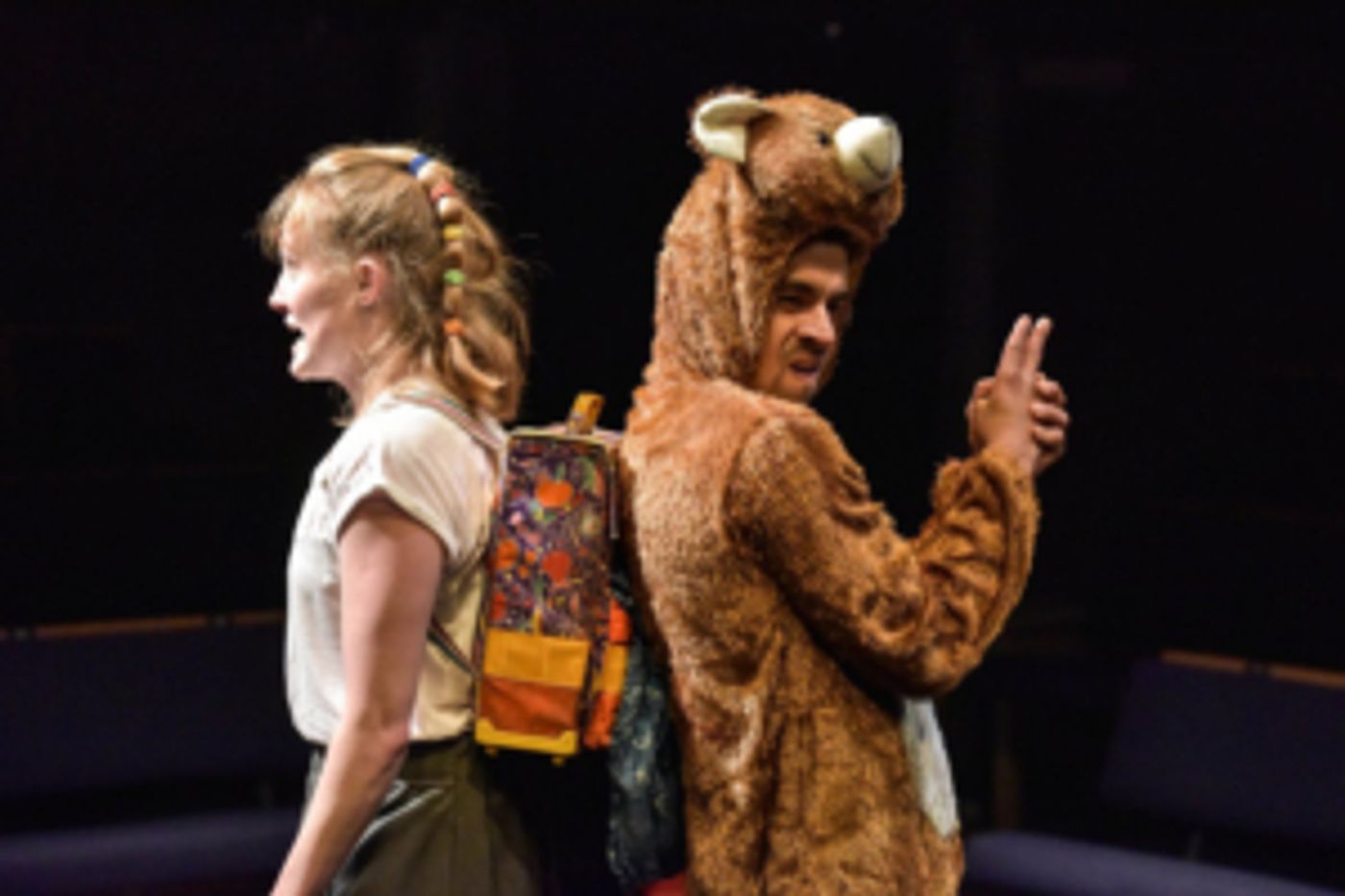Review: SADNESS AND JOY IN THE LIFE OF GIRAFFES, Orange Tree Theatre

![]() There is something innately sad about Portuguese dramatist Tiego Rodrigues' play, Sadness and Joy in the Life of Giraffes. This is the final play of the Orange Tree Theatre's Directors' Festival where Director Wiebke Green explores an intriguing play about childhood, loss and growing up.
There is something innately sad about Portuguese dramatist Tiego Rodrigues' play, Sadness and Joy in the Life of Giraffes. This is the final play of the Orange Tree Theatre's Directors' Festival where Director Wiebke Green explores an intriguing play about childhood, loss and growing up.
Giraffe is a precocious nine-year-old; her mother is dead and her out-of-work actor father cannot pay the bills. For Giraffe, the worst part of this situation is that she can no longer study the behaviour of giraffes on the Discovery Channel. To rectify this, Giraffe takes Judy Garland, her foul-mouthed teddy bear, on a bizarre adventure to raise some cash.
Rodrigues uses this plot to explore themes of loss, grief and difficult realities of adulthood. In a play that is sometimes like a warped version of Alice in Wonderland, Giraffe has encounters with a suspected paedophile, a bank manager and the Prime Minister. It is not always an easy play to watch; Giraffe is a bright young girl, narrating her exact actions and those of others with the innocence of a child, but also with an underlying and unspoken grief at the loss of her mother.
The use of a foul-mouthed teddy bear as an alternative form of consciousness is not a new idea, but it is effective in this play. On a basic level, the extreme swearing is an initially shocking and amusing character trait that grates somewhat as the play continues, but it is also a possible reflection of Giraffe's internal anger and frustration at her mother's death. Judy Garland stays with her at all times, just as her mother may have done. When he leaves, it is a symbol of Giraffe growing up.
Eve Ponsonby is excellent as Giraffe; she is completely believable as a child. Rodrigues' script reflects the repetitive nature of a child's language in Giraffe's descriptions, which could become annoying in the wrong hands, but Ponsonby is so engaging that the audience remains with her throughout.
Physically Ponsonby is very convincing as a nine-year-old, with multi-coloured hair bands, plasters on her legs and lacy ankle socks. She also has a vibrancy and energy that is totally believable.
Gyuri Sarossy plays Giraffe's father and several other characters. Sarossy is heartbreakingly empty and bereft as the bereaved father, but has less to work with as the other odd characters that Giraffe comes across.
Nathan Welsh is clearly having a ball playing Judy Garland, the potty-mouthed teddy. His presence is constant and touching in Giraffe's life. Wiebke Green's direction shows subtle delicacy here, with discreet activity, such as Judy Garland pulling gently on Giraffe's socks as they lay on her bed, which belies his faux-aggressive and confrontational nature.
Some of the writing of the play is intriguing, but also feels disjointed and fractured in places. Giraffe's adventures seem almost dream-like and her encounters with a bank manager and the Portuguese Prime Minister seem forced and inconsequential.
Green creates an engaging production, with some excellent performances, particularly from Eve Ponsonby, who is an actor to watch out for.
Photo Credit: Robert Day
Reader Reviews
Videos

